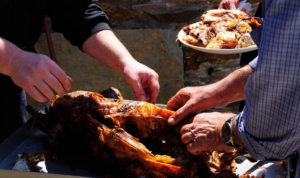The Institute of Retail Consumer Goods Research conducted a survey in March 2024 where 800 consumers across Greece participated. Data showed changes in Easter consumption and dietary habits. One in four households plan to travel outside the urban areas for Easter. However, responses show that more families will opt for homemade preparations instead of purchasing. Despite this, consumption remains at €190 per household.
Most Easter shopping is expected to occur during Holy Week, with 35% making purchases earlier, 4% this weekend, 53% during Holy Week, and 9% at the last minute. Although 40% of consumers anticipate decreasing their Easter buys, 34% expect an increase, and 26% believe their spending will remain unchanged.
Additionally, 26% of households plan to travel to villages or islands for Easter, down from 53% in the previous decade. Family gatherings will be smaller, with 43% participating in gatherings of over 10 people, compared to 67% in 2019.
Greece’s Supreme Court announces participating parties in the European elections
There is a rising trend in DIY cooking and baking, with more consumers opting to make sweets and Easter items at home. For lamb and goat, although there is an increase in roasting compared to 2023, the percentages remain low compared to the past. However, oven baking is on the rise.
These changes, along with smaller family gatherings, result in estimates of smaller purchases and different meat choices. 42% plan to buy lamb or goat from butchers, while 31% will purchase from supermarkets. Only 9% plan to have an Easter meal in the catering sector, down from 12% in 2023.
Ask me anything
Explore related questions





